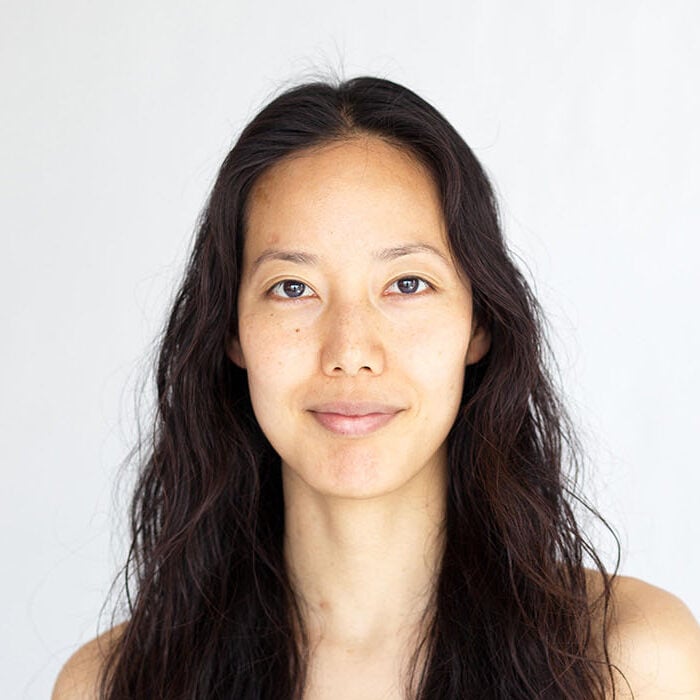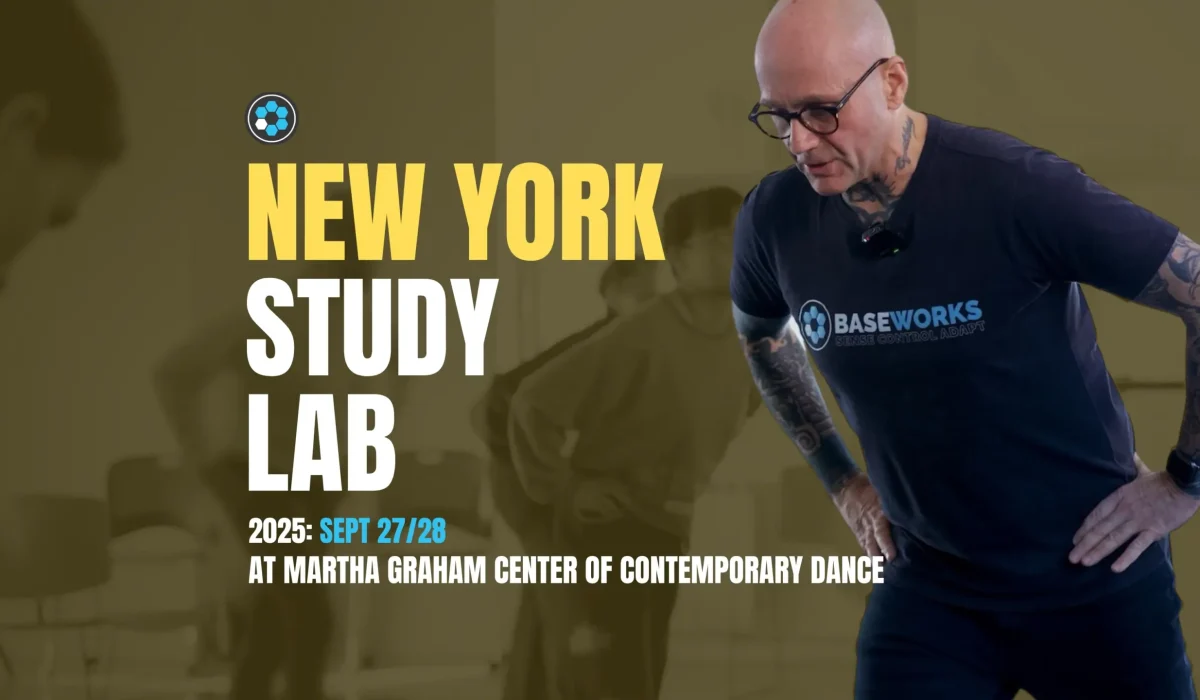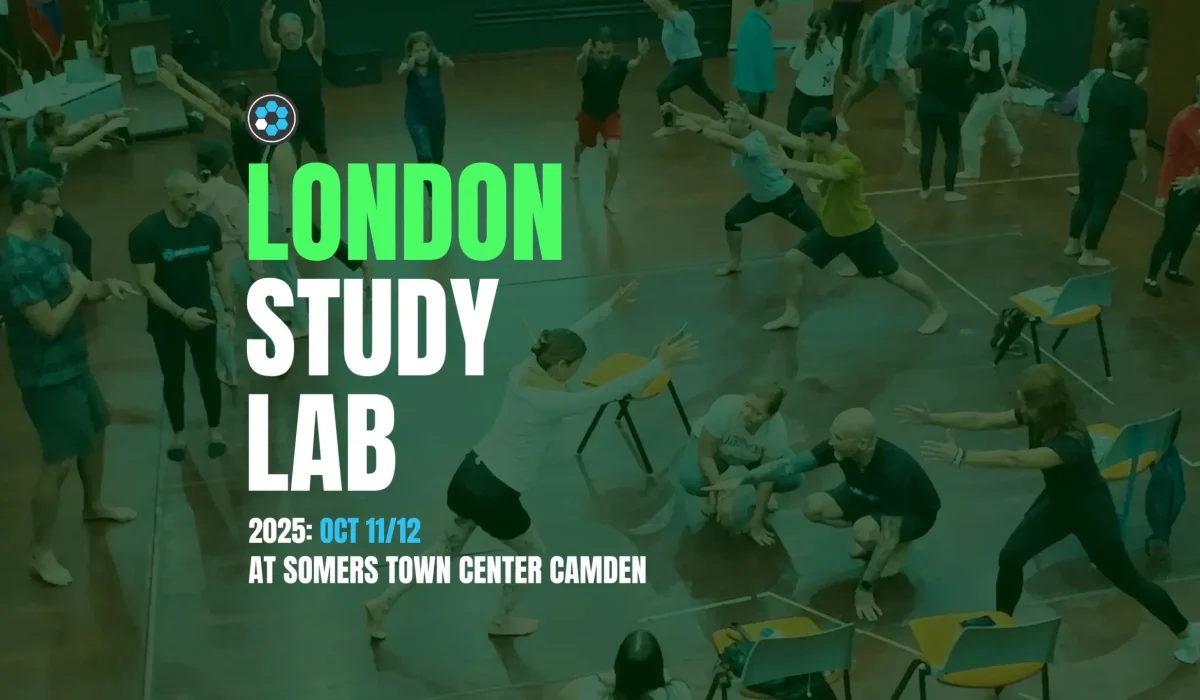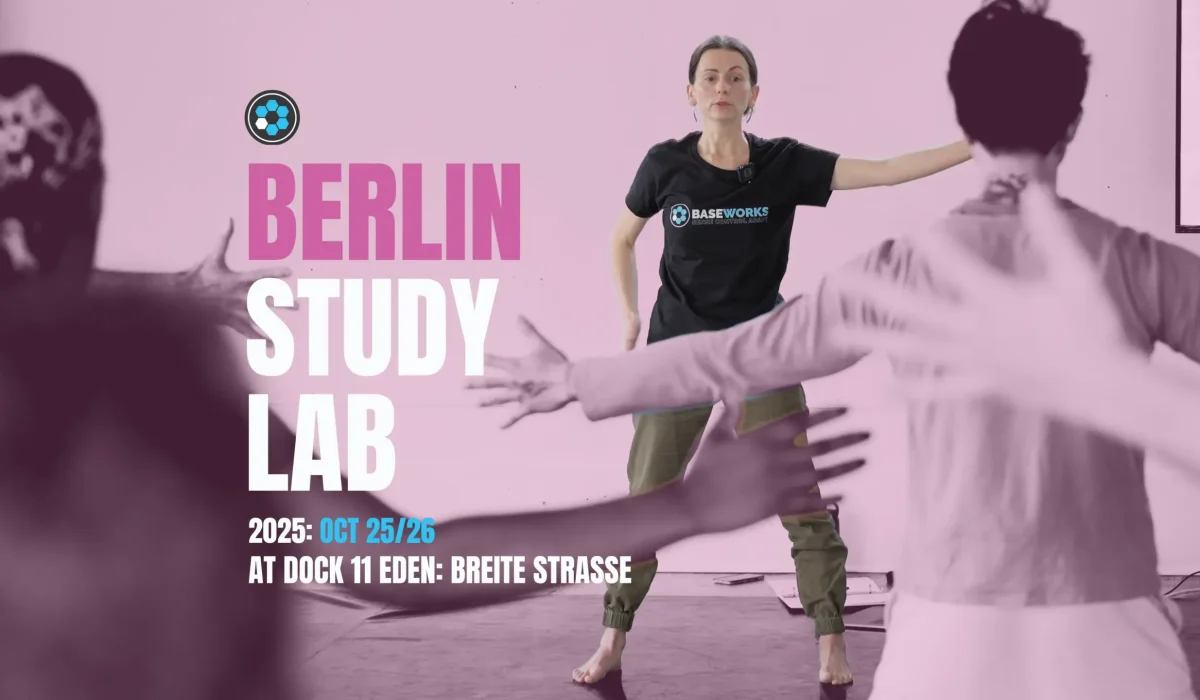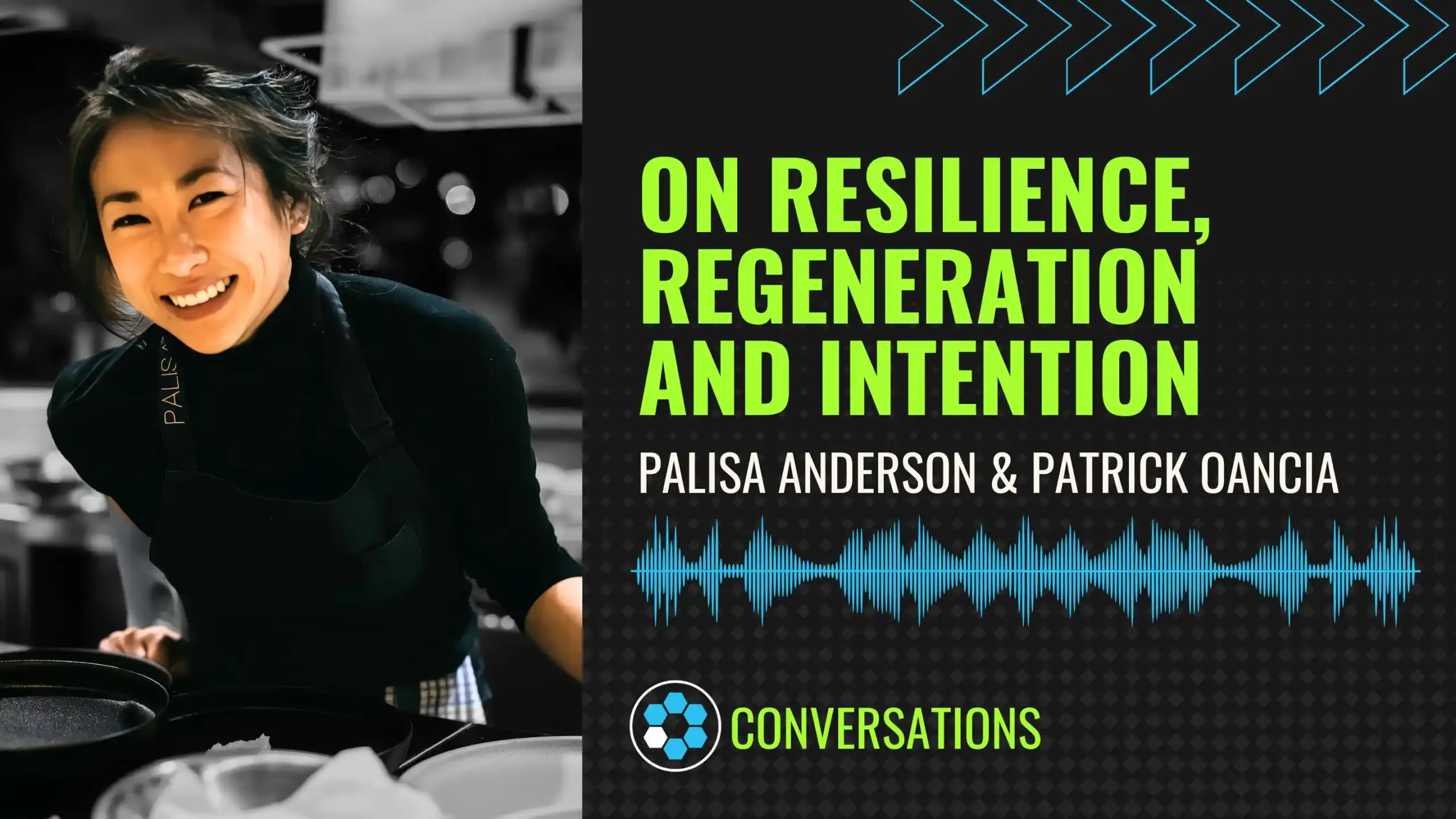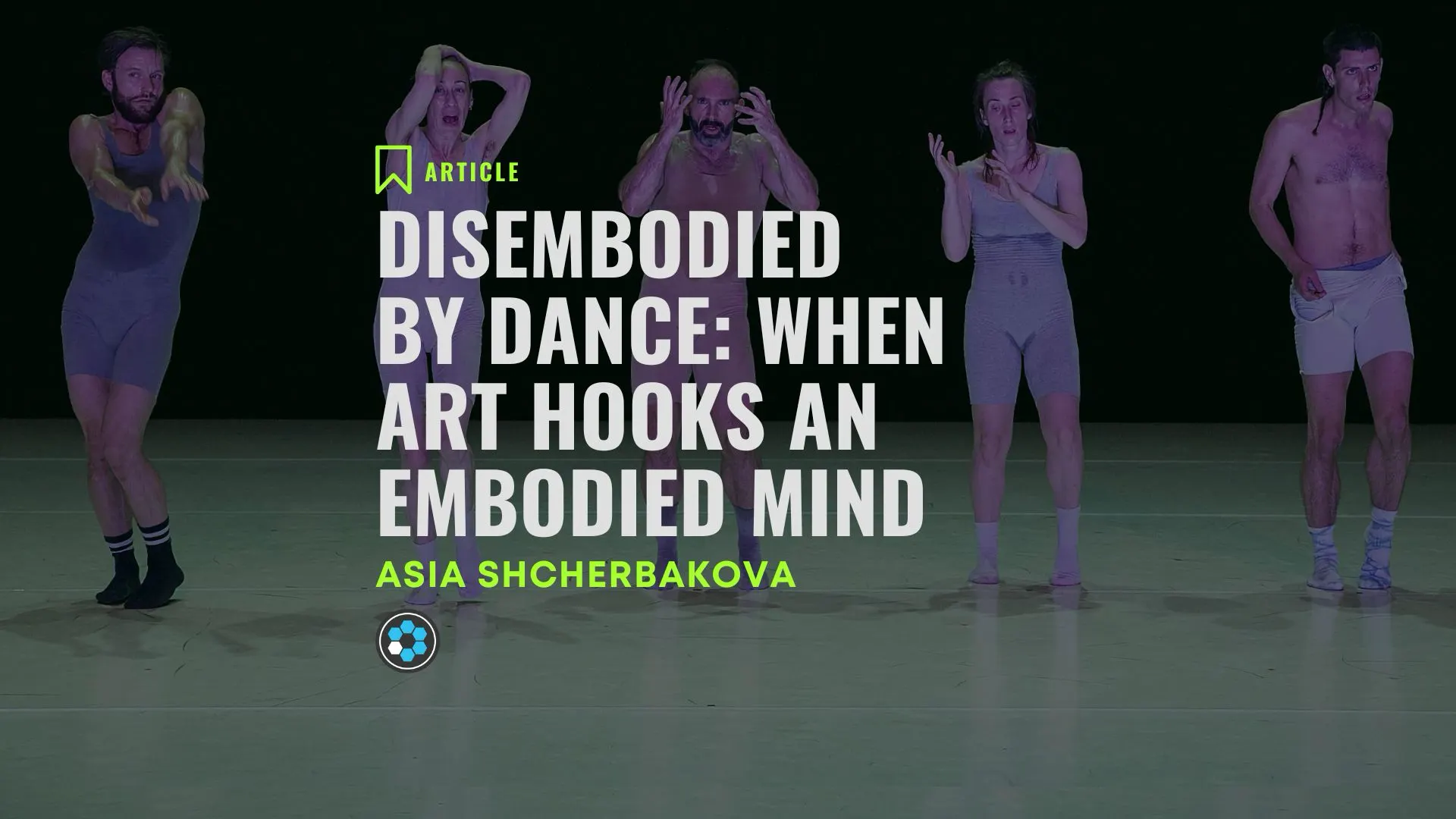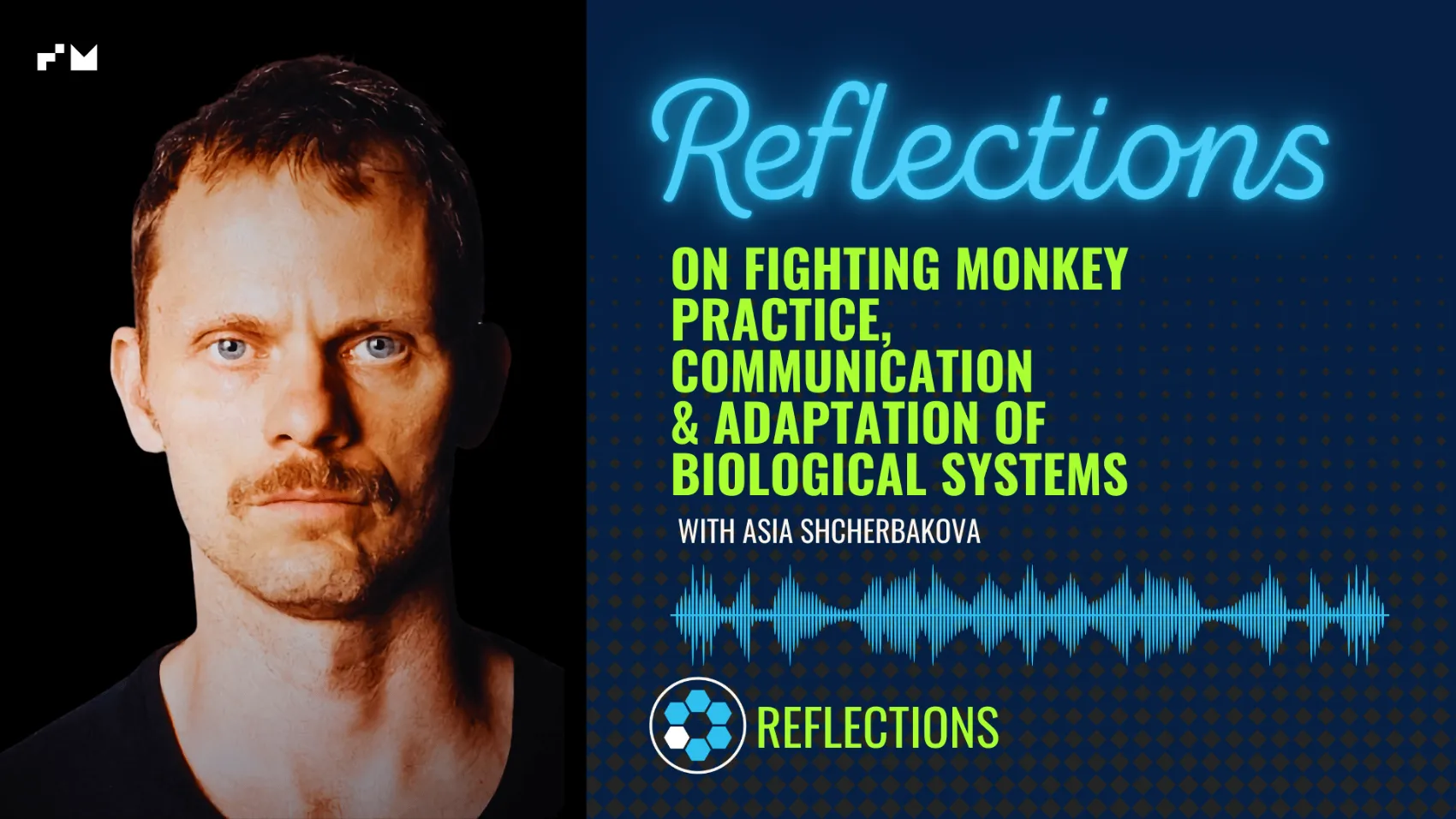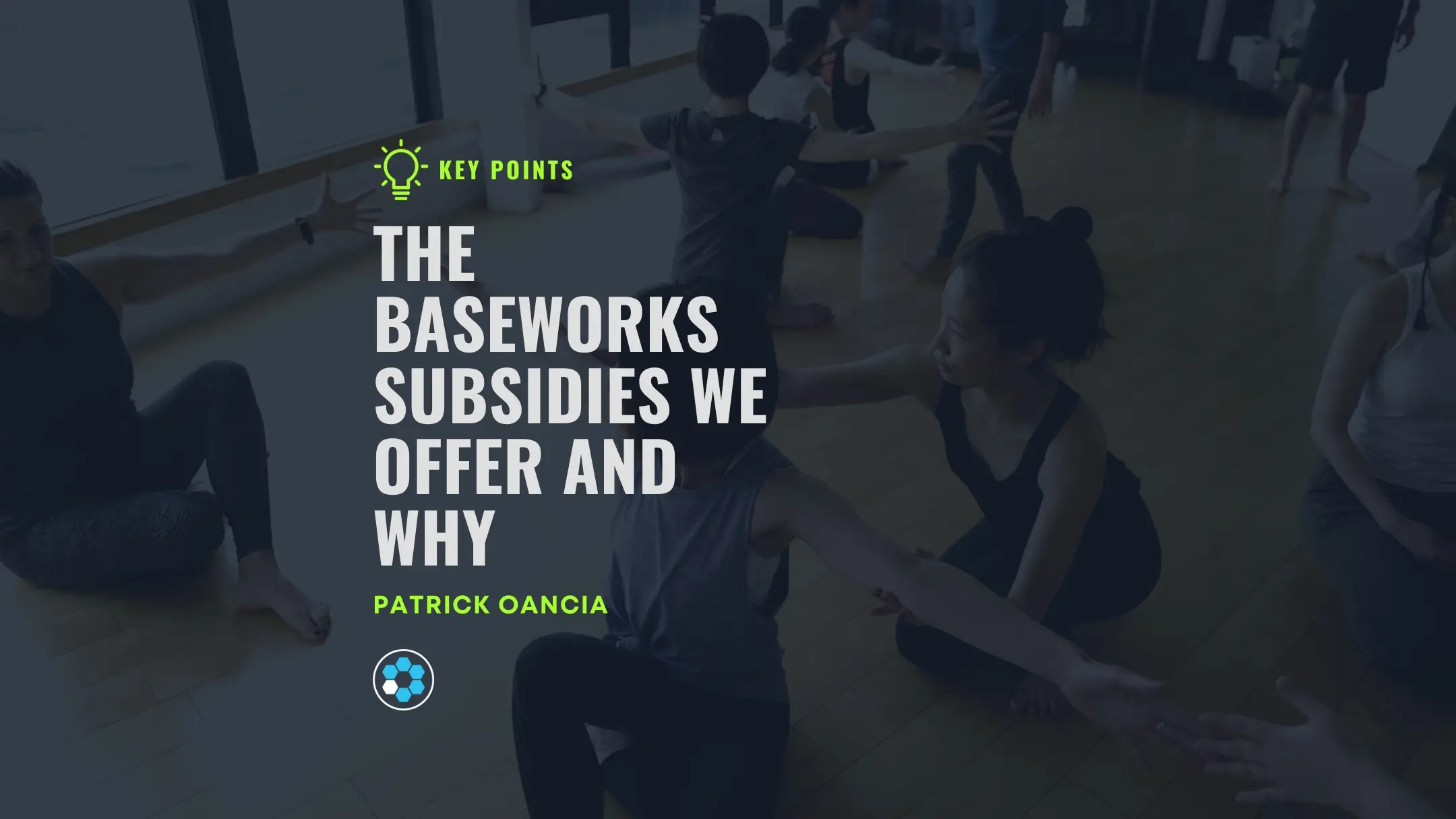Drawing to me feels like measuring my body temperature. It is a process of sensing my present state, using a thermometer-like tool to probe and extract whatever comes out of it.
It is a method of self-expression which is deeply personal and cathartic.
In one way, the process of uncovering the deeper aspects of self and the precious experiences gained when guiding the expression is far more valuable than the actual completion of the drawing.
This is perhaps exactly the reason why I do not call myself an artist.
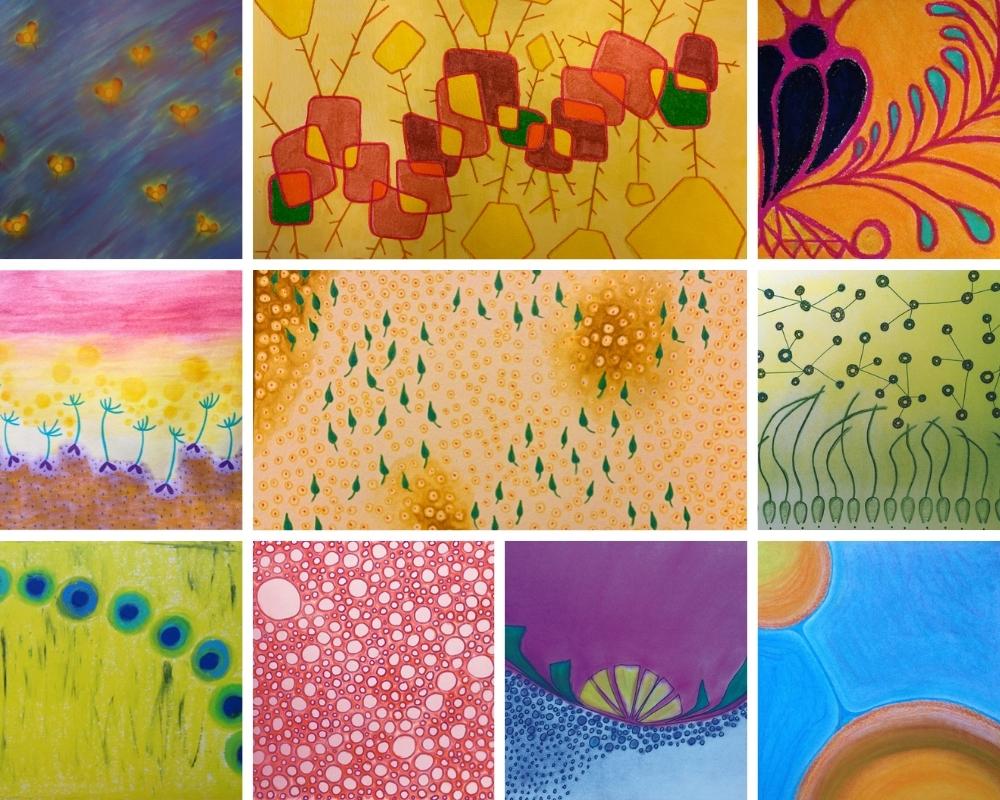
What I place importance on during the drawing process is the action of increasing sensitivity while moving the body.
For me, whatever the movement, as I venture deeply into the movement process and begin to merge into that environment, a moment arises where thoughts become suspended in space, allowing all the images to emerge.
It is an unraveling experience of memories buried somewhere in the undulating landscapes of my body, that flash like strobe lights set off by movement.
Beneath all this, are the practices of mindfulness/meditation, breathwork, walking/swimming.
And the cyclical practice of Baseworks has contributed greatly in raising the sensitivity of my physical movement capacity and body awareness.
In addition to these daily practices, to broaden my movement perspectives, I utilize running, cycling, hiking, climbing, snowboarding, snowshoeing, contact improvisation, as well as methods to explore movement language such as Ohad Naharin‘s Gaga and many more.
Having a consistent foundational base is what evolves my practice, as I incorporate new movements, adapt to the subtle changes, observe them, and gradually increase the sensitivity.
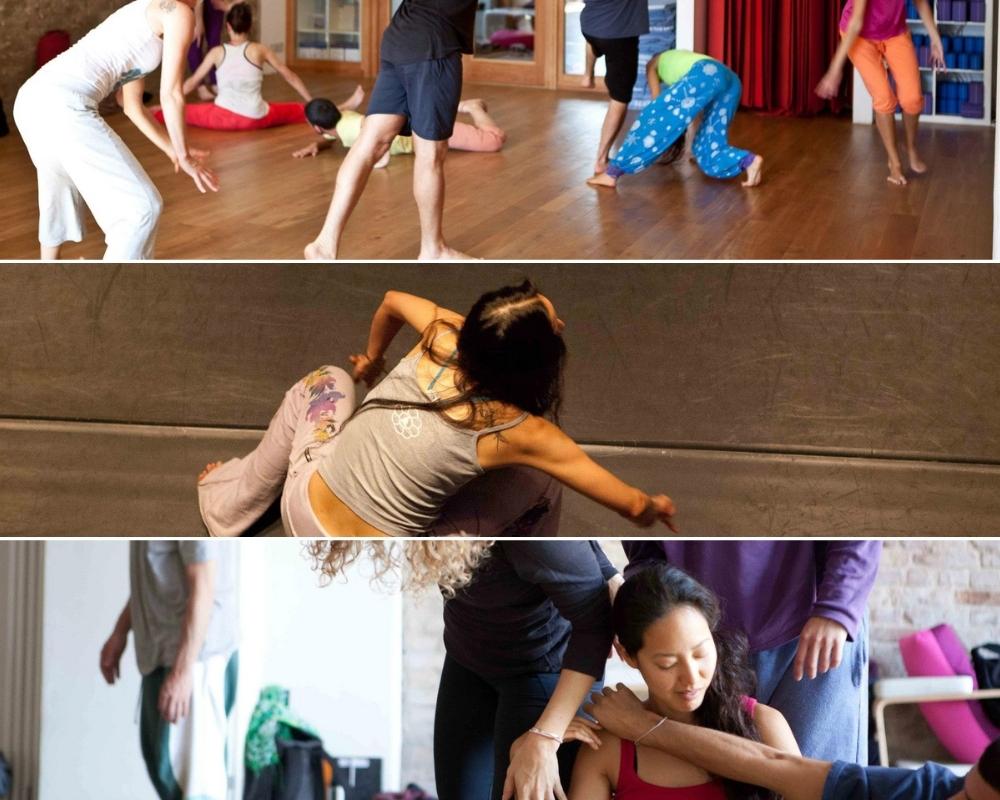
In combination with these internal processes, what provides a robust impact on the images that come up are the external stimuli I absorb from the periphery.
Where I go, what I see, what I touch, the kind of dialogue I encounter, what I learn and eventually embody.
I prefer and prioritize visual input and tactile sensations such as, outdoor museums/architecture, immersive events/performances, outdoor art/culture generating festivals, activities/camping in nature. These are experiences that covertly embed the sources of inspiration in multiple fragments within my body.
The experiences themselves provide an opportunity to view things from different perspectives. They also motivate me to try things I am not used to, by relearning something via the letting go of habitual assumptions, and leave me in a diverging experiential hue.
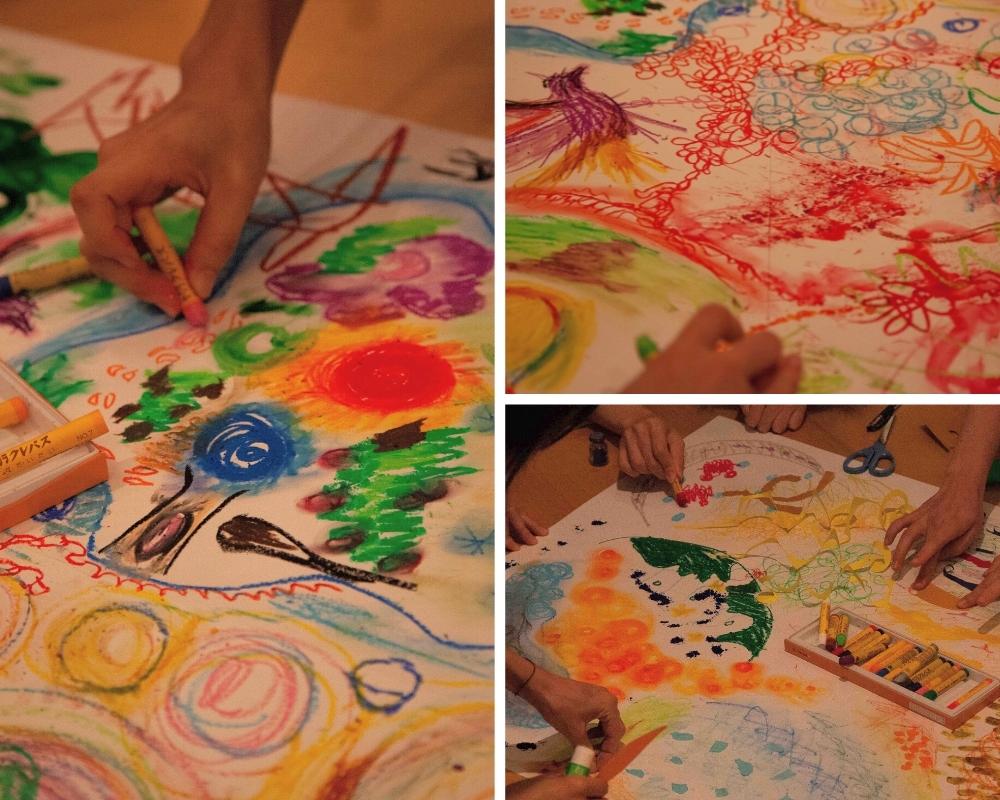
Hence, the inner and outer processes. To grasp the images that surface through body movement, and to channel whatever that is onto a canvas using all the parts of my fingers and hands.
Crayons, pastels, pigment colors, are applied viscerally onto my fingertips and hands, and as I allow the hand to converse with the drawing paper, the sparks of sensations that emerged out of movement become encapsulated into a two dimensional universe.
These moments of drawing resemble the experience of moving the body, and this is where I blend with the expression, with my thoughts suspended, where time stops and the periphery of reality slips away.
This may resemble something similar to what Mihaly Csikszentmihalyi describes as “flow” in his TED talk “Flow, the secret to happiness”.
And finally, when I look at the drawing, I am able to retrospectively make sense of the state I was in, both inside and out. In this way, drawing is a litmus paper for self-awareness.
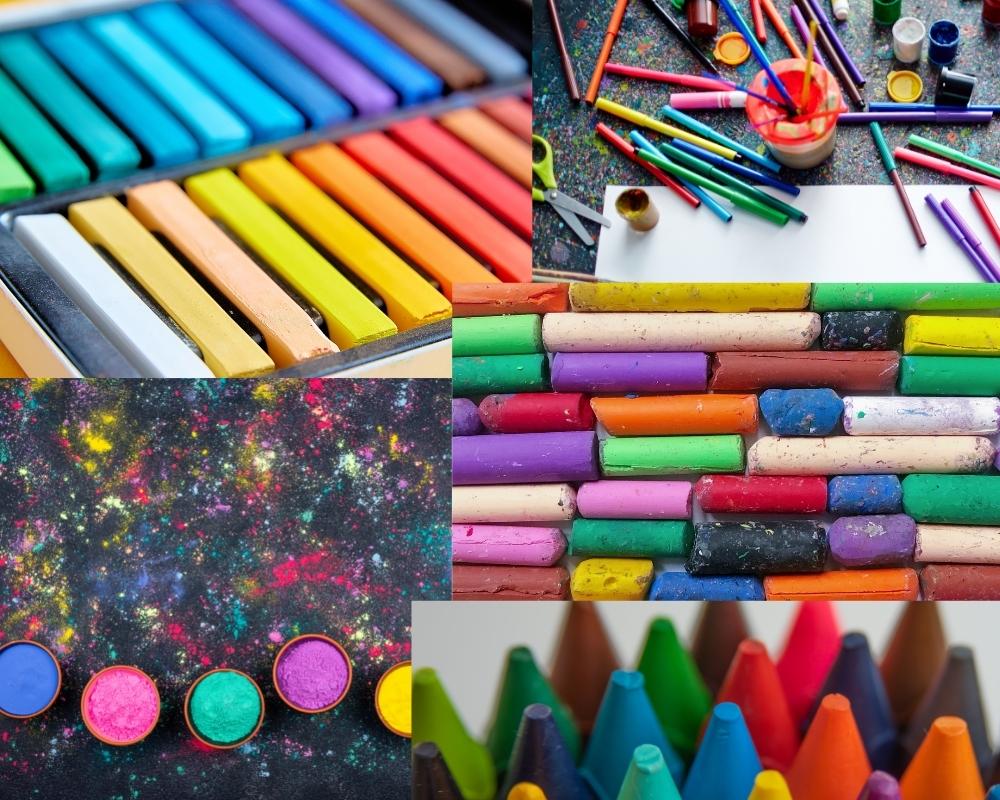
Finally, for those who are curious:
- The Tamalpa Life/Art Process, which combines movement, dance, drawing, and writing, has influenced the fields of dance, environmental design, theater, movement therapy, and art-based psychology.
https://www.tamalpa.org/ - Book “The Creative Habit: Learn It And Use It For Life” by Twyla Tharp, designed to help the reader develop new habits of observation, restoring peace of mind and maximizing efficiency.
https://www.twylatharp.org/works/creative-habit-learn-it-and-use-it-life
Instagram: @tento64


